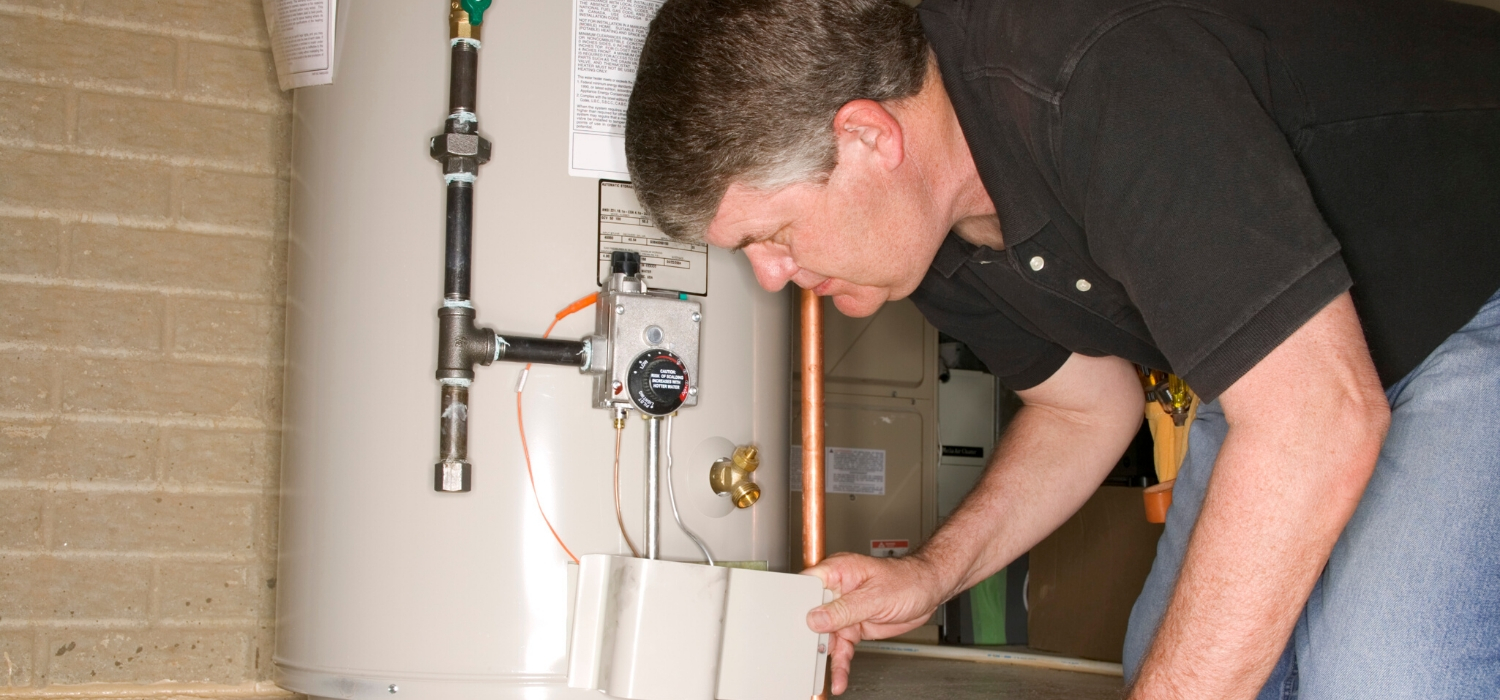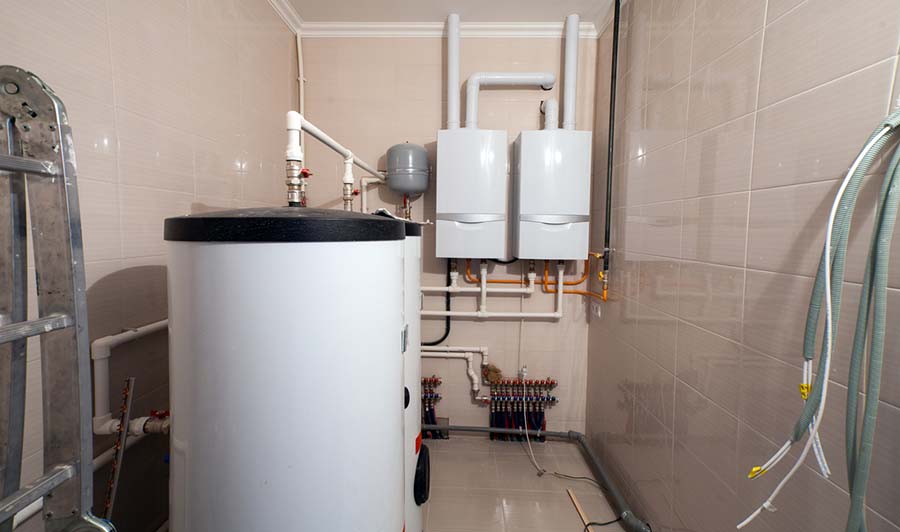Dealing with the Top Water Heater Crisis Situations
Dealing with the Top Water Heater Crisis Situations
Blog Article
On this page in the next paragraph you can locate some decent help and advice concerning The Importance of Water Heater Maintenance.

A hot water heater is among one of the most essential standard devices that can be discovered in a residence. With hot water heater, you do not require to undergo the stress of home heating water manually every time there is a demand to wash, wash, or the recipes. Nevertheless, there is always an opportunity that your hot water heater would certainly act up similar to the majority of mechanical devices.
It is essential to keep in mind any kind of little breakdown and also tackle it swiftly prior to points leave hand. Many times, your hot water heater begins to malfunction when there is an accumulation of debris as a result of continual usage. As a safety measure, regular flushing of your water heater is advised to stop sediment buildup and avoid practical failing.
Common hot water heater emergency situations and how to deal with them
Inadequate hot water
It may be that the water heating unit can't support the hot water need for your apartment. You could update your water heating system to one with a larger capability.
Rising and fall water temperature level.
Your hot water heater could start producing water of different temperature levels normally ice hot or cold hot. In this situation, the first thing you do is to guarantee that the temperature level is set to the wanted level. If after doing this, the water temperature level maintains transforming throughout showers or various other tasks, you may have a faulty thermostat. There might be a need to replace either the heating or the thermostat device of your water heater.
Leaking hot water heater container.
In this scenario, you ought to turn off your water heating unit, allow it to cool down, and carefully look for the source of the problem. At times, all you need to do is to tighten up a few screws or pipe links in instances of minor leakages. If this doesn't function and the leakage continues, you could need to use the solutions of a specialist for a proper substitute.
Blemished or odiferous water
When this takes place, you need to recognize if the issue is from the water or the storage tank resource. If there is no funny odor when you run cold water, then you are certain that it is your water heater that is damaged. The odiferous water can be brought on by corrosion or the build-up of germs or sediments in the water heater container. Once you see this, you can try flushing out your container or changing the anode if the issue continues. The function of the anode is to clean microorganisms from your tank. Since the anode pole substitute requires a comprehensive understanding of your water heater, you will certainly need the help of a professional.
Final thought
Some home owners ignore little caution and also minor faults in their hot water heater system. This just brings about additional damage as well as a feasible full break down of your device. You need to take care of your hot water heater mistakes as quickly as they come up to stay clear of even more expenditures and unnecessary emergency troubles.
With water heaters, you do not need to go with the stress and anxiety of home heating water by hand every time there is a need to take a bathroom, do the laundry, or the meals. It might be that the water heating system can not support the hot water need for your home. Your water heating unit could begin creating water of different temperatures usually ice hot or cold hot. If there is no amusing smell when you run chilly water, then you are specific that it is your water heater that is malfunctioning. The stinky water can be triggered by corrosion or the accumulation of germs or debris in the water heater storage tank.
What’s Wrong With My Water Heater?
Not Enough Hot Water
You probably encounter this problem in the shower or while washing dishes. As you run your water, you’ll notice it starting to cool down. Turning up the hot faucet may not work, or it may only heat the water for a short period. Your hot water probably comes back and works normally one or two hours after you use it up.
If you’ve never had enough hot water, your heater may be too small for your home. If you haven’t had a problem until recently, there’s probably something’s wrong with your heater’s thermostat. Try adjusting it to see if you can feel a difference. Even if the thermostat’s working, the heating element itself could have burnt out. It’s also possible that a clog has restricted water flow into or out of the heater. Luckily, none of these problems are hard to fix, as long as you call them in early.
Water is Too Hot
Unregulated water heaters can make water dangerously hot. You probably have this problem if you’ve been scalded by your hot water. It’s also a likely culprit if you have trouble getting your faucets to produce a comfortable temperature. This problem is easy to fix, but it can also be a serious health hazard if you don’t address it. If you think your water is too hot, don’t doubt yourself; look into it!
Start by finding your heater’s thermostat and mark its position with a pen. Turn the thermostat to a cooler setting. Wait a couple hours to see if the problem is solved. If it isn’t, listen for boiling in the tank and look for water that comes out of the faucet steaming. In those cases, your temperature-pressure relief valve may be malfunctioning. This is a serious problem that can be dangerous, so you should have it looked at right away.
Discolored or Smelly Water
If all your water looks rusty or smells weird, there’s probably a problem with your pipes. If only your hot water looks weird, however, your water heater is probably at fault. Hot water discoloration comes in several varieties. It could look orange or brown-ish, taste rusty, or feel grainy. It could also look yellow or green-ish and taste gross or feel slimy. Either way, it’s a sign that there’s something wrong with your water heater’s tank.
Usually, hot water discoloration means sediment has built up in your tank. Sediment is made up of hardened minerals that accumulate on the inside of the water heater’s walls. When enough sediment builds up, it causes all kinds of problems–including your discolored water. Try flushing your water heater tank to clean out built up sediment. If the water still tastes rusty, your tank’s rust-preventing anode rod may have worn out. A pro can replace an anode rod easily, but without one, your tank could rust beyond repair relatively quickly.
Leaking
Water heaters can leak from several different places, and each leak means something different. If the leak is coming from a pipe above the heater, it’s possible the tank itself hasn’t been compromised. The cold inlet, hot outlet, and T&P pipes could all leak from above. Try tightening the problematic valve. If that doesn’t work, then the valve or pipe will have to be replaced.
If the leak is coming from the bottom of the tank, it’s important to determine exactly where it is. The leak could be coming out of the drain valve or your T&P valve below the tank. You can replace those valves and preserve the tank itself. If you notice the water tank itself leaking, however, that probably means it’s corroded beyond the point-of-no-return. Leaking water heaters are a big deal, so you should get yours replaced ASAP.
https://www.punctualplumberdallas.com/blog/whats-wrong-water-heater/

Do you appreciate more info about Is Your Water Heater Leaking?? Give a comment down below. We will be pleased to hear your reactions about this blog. We hope to see you back again before long. I beg you take the opportunity to share this entry if you appreciated it. Thank you for your time. Kindly visit our blog back soon.
Secure your plumbing; seek professionals. Report this page